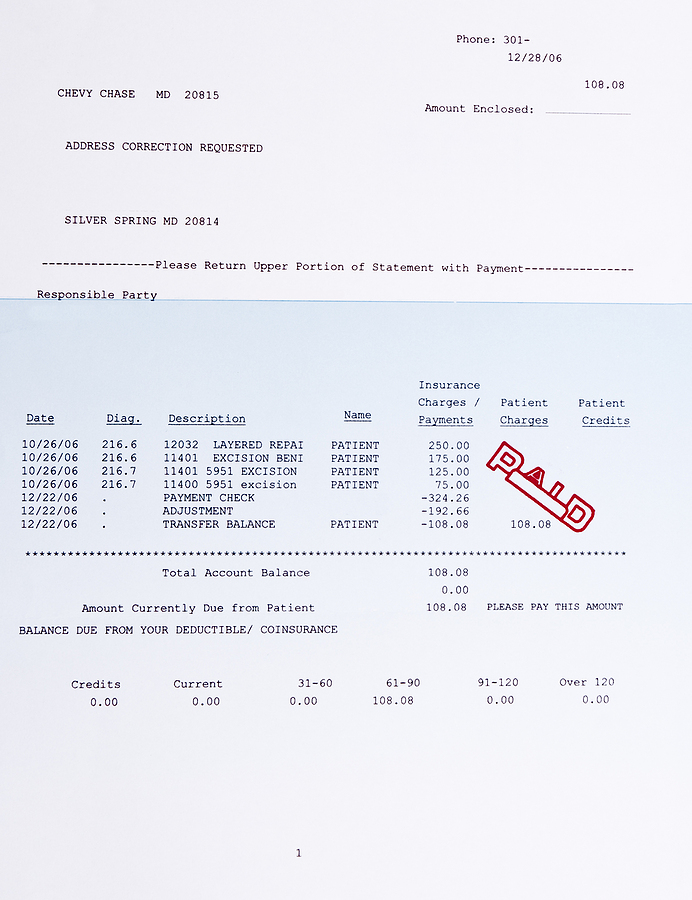
After getting hurt in a car accident, your priority is to seek medical treatment as soon as possible. If you suffered severe injuries, you should receive emergency care and transportation to the hospital for further treatment. But you should still obtain medical care even if you feel okay and only have minor bruising or cuts. Furthermore, you should also get yourself checked out by a doctor even if you are displaying any visible signs of injury.
In some cases, injured victims won’t feel any symptoms or pain following a car accident because of the rush that adrenaline and endorphins give to the body. This is why seeking medical attention after any kind of accident is critical. Besides being beneficial for your recovery and peace of mind, obtaining medical treatment will likewise provide solid evidence if you are filing an injury claim later. Your medical records will be a crucial factor in proving that your injuries resulted from another party’s negligence.
Now, you may wonder who will pay for all the medical treatment you will need after the car accident, especially if you did not cause the accident?
You Should Not Have to Pay for Your Medical Bills, but You Might Have to up Front
While you shouldn’t have to pay for all the out-of-pocket medical treatment costs that will surely accumulate—you might need to. One exception to this standard is when you have no-fault auto insurance and/or have medical payments (MedPay) insurance coverage.
Another exception is when your attorney reaches an agreement with your medical providers to hold your bills until you settle. This does not always happen in every case, but it is something you should definitely discuss with the attorney you decide to call.
Outside of these situations, you will need to pay the bills as they come in, and if you are not getting anything from insurance while you get treatment, you must still pay your bills. Accident investigations could take some time, and you may need to continue your treatment while your accident is under investigation.
The individual who caused your injuries does not have the obligation to cover your bills until their insurer agrees to a settlement or the court orders a judgment against them. Never hesitate to discuss how to handle your incoming medical bills with your car accident attorney.
If The Car Accident Occurred in an At-Fault State
If the accident happened in an at-fault state, you would be liable for paying all your medical expenses as you incur them. But some drivers in at-fault states may have medical payments coverage. This insurance policy will pay for the medical expenses of the drivers and/or passengers involved in an accident with the liable party, but only up to the individual’s MedPay coverage limits, which are usually up to $10,000.
However, if your medical expenses exceed the MedPay coverage limits, it will be up to you to pay the excess. Likewise, MedPay insurance is usually optional, which means that if you or the liable party does not have MedPay coverage, you need to pay the bills.
While the at-fault driver’s insurance provider should reimburse you for unpaid medical expenses and out-of-pocket bills that your insurance doesn’t cover, they will only do so once you settle with them or you win your case in court. Never wait to begin this process—you want to get paid for your bills as soon as possible.
If The Car Accident Occurred in a No-Fault State
If the accident occurred in a no-fault state, such as New York, your personal car insurance has the legal obligation to pay for your medical expenses. These benefits come from your no-fault auto insurance or personal injury protection (PIP) coverage. However, your insurance provider will only cover your expenses up to your PIP policy limits. You might likewise be responsible for paying some of the expenses via copayments and deductibles.
Once you exhaust your no-fault insurance limit, you will be on the hook for paying the remainder of your bills if you do not take further legal action. If you have health insurance coverage, your insurer should pay your bills. Likewise, if you have Medicaid or Medicare benefits, this can help pay your bills as well. But if you don’t have any insurance, then you will need to make payment arrangements with the hospital and your medical providers.
If your injuries are very serious and your medical expenses exceed your no-fault insurance coverage, you may file a claim against the liable party that caused your injuries. Always explore this option with a car accident lawyer who can advise you of your qualification for fault-based claims and assist with the entire process.
If the Car Accident Was Work-Related
If you suffered injuries in a car accident while on the job, and you file a workers’ compensation insurance claim, your employer’s insurance provider should pay your medical expenses. You won’t have to pay any deductibles or related bills. Depending on the specific circumstances of your claim, you may also receive reimbursement for transportation costs, including parking, tolls, and mileage, for medical appointments.
Keep in Mind that Some Insurance Companies Can Seek Reimbursement
Your health insurance provider and state agencies that administer Medicare and Medicaid will seek reimbursement for the medical bills they paid. This reimbursement will come from what you will hopefully receive from your car accident settlement or court judgment.
This is another reason why seeking legal advice from an experienced car accident lawyer is essential. A lawyer will help you explore your options and help you decide which ones will work best for your case so you can avoid paying for upfront medical expenses and obtain the compensation you deserve.
Never fail to seek treatment after a car accident out of fear of medical bills, as there are different options for seeking compensation for these expenses. Your health and physical well-being are too important to ignore.



